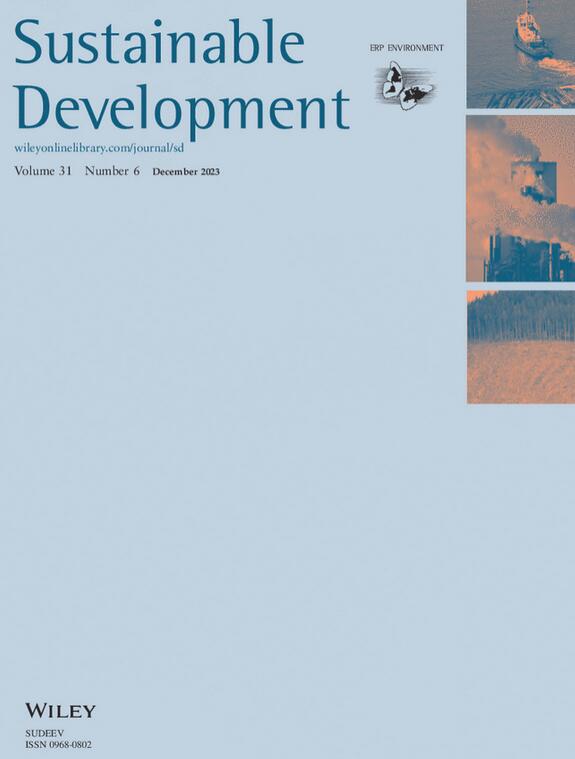Proposing a composite index and maturity model for urban sustainability in the Brazilian context: A machine learning and data envelopment analysis approach
IF 9.9
1区 环境科学与生态学
Q1 DEVELOPMENT STUDIES
引用次数: 0
Abstract
Despite efforts towards the accomplishment of the UN 2030 Agenda, the challenges of burgeoning populations, income inequality, difficulty in accessing basic services, among others, remain in several cities around the world. New approaches to measure and assess the sustainability of cities can support the development of actions to improve the different dimensions of sustainability. The research aims to propose an urban sustainability index and a maturity model to evaluate the sustainability of cities and monitor it over time. To achieve this objective, a maturity model was developed based on three different techniques: Data Envelopment Analysis, Artificial Neural Networks, and Analysis of Variance. The proposed index and the maturity model were applied to evaluate a sample of 504 Brazilian cities. The main results observed are: (a) the presence of five distinct levels of city performance (maturity), grouped via machine learning and validated via inferential statistics; (b) no city was considered fully sustainable and only 4.76% of the cities studies are at the highest level of urban sustainability maturity; (c) from a joint application of the three quantitative techniques and specific targets for each indicator could be identified, and the performance of cities classified over time. Based on the results, it is hoped that policy makers will have more objective and standardized tools to collect useful information and be able to reinforce critical strategies or chart new policies towards sustainable urban development. It is also hoped that the joint application of the techniques can shed light on new urban sustainability assessment models.提出巴西城市可持续性的综合指数和成熟度模型:机器学习和数据包络分析方法
尽管为实现联合国 2030 年议程做出了努力,但人口激增、收入不平等、难以获得基本服务等挑战在全球多个城市依然存在。衡量和评估城市可持续发展的新方法可以为制定改善可持续发展不同层面的行动提供支持。这项研究旨在提出一种城市可持续性指数和成熟度模型,以评估城市的可持续性并对其进行长期监测。为了实现这一目标,我们基于三种不同的技术开发了一个成熟度模型:数据包络分析、人工神经网络和方差分析。提出的指数和成熟度模型被用于评估巴西 504 个城市的样本。观察到的主要结果有(a) 城市绩效(成熟度)存在五个不同的等级,通过机器学习进行分组,并通过推理统计进行验证;(b) 没有一个城市被认为是完全可持续的,只有 4.76% 的研究城市处于城市可持续发展成熟度的最高等级;(c) 通过三种定量技术的联合应用,可以确定每个指标的具体目标,并随着时间的推移对城市绩效进行分类。根据这些结果,我们希望决策者能够拥有更加客观和标准化的工具来收集有用的信息,并能够加强关键战略或制定新的政策,以实现城市的可持续发展。我们还希望这些技术的联合应用能够为新的城市可持续发展评估模型提供启示。
本文章由计算机程序翻译,如有差异,请以英文原文为准。
求助全文
约1分钟内获得全文
求助全文
来源期刊

Sustainable Development
Multiple-
CiteScore
17.30
自引率
11.20%
发文量
168
期刊介绍:
Sustainable Development is a publication that takes an interdisciplinary approach to explore and propose strategies for achieving sustainable development. Our aim is to discuss and address the challenges associated with sustainable development and the Sustainable Development Goals. All submissions are subjected to a thorough review process to ensure that our readers receive valuable and original content of the highest caliber.
 求助内容:
求助内容: 应助结果提醒方式:
应助结果提醒方式:


